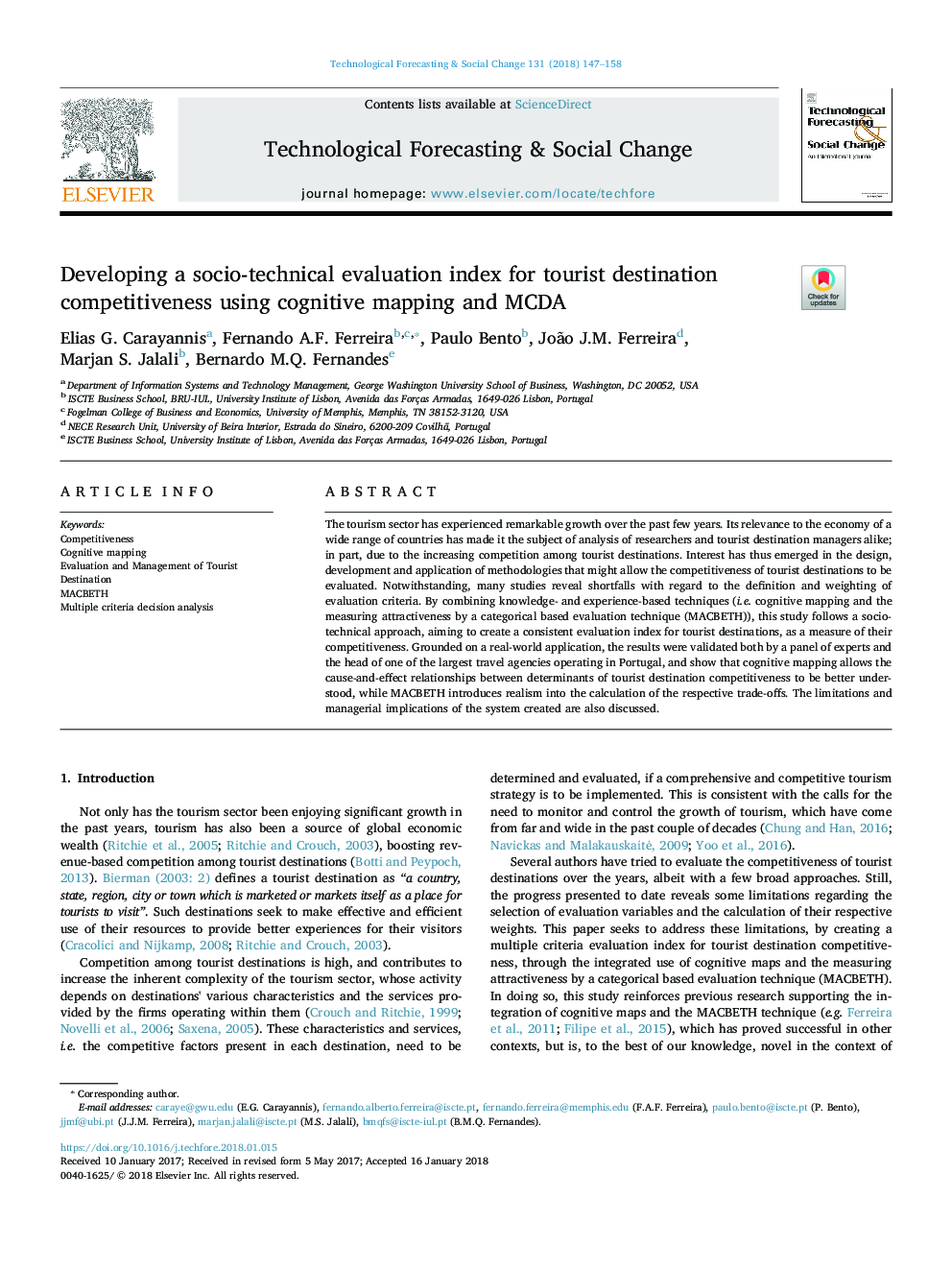| Article ID | Journal | Published Year | Pages | File Type |
|---|---|---|---|---|
| 7255380 | Technological Forecasting and Social Change | 2018 | 12 Pages |
Abstract
The tourism sector has experienced remarkable growth over the past few years. Its relevance to the economy of a wide range of countries has made it the subject of analysis of researchers and tourist destination managers alike; in part, due to the increasing competition among tourist destinations. Interest has thus emerged in the design, development and application of methodologies that might allow the competitiveness of tourist destinations to be evaluated. Notwithstanding, many studies reveal shortfalls with regard to the definition and weighting of evaluation criteria. By combining knowledge- and experience-based techniques (i.e. cognitive mapping and the measuring attractiveness by a categorical based evaluation technique (MACBETH)), this study follows a socio-technical approach, aiming to create a consistent evaluation index for tourist destinations, as a measure of their competitiveness. Grounded on a real-world application, the results were validated both by a panel of experts and the head of one of the largest travel agencies operating in Portugal, and show that cognitive mapping allows the cause-and-effect relationships between determinants of tourist destination competitiveness to be better understood, while MACBETH introduces realism into the calculation of the respective trade-offs. The limitations and managerial implications of the system created are also discussed.
Related Topics
Social Sciences and Humanities
Business, Management and Accounting
Business and International Management
Authors
Elias G. Carayannis, Fernando A.F. Ferreira, Paulo Bento, João J.M. Ferreira, Marjan S. Jalali, Bernardo M.Q. Fernandes,
